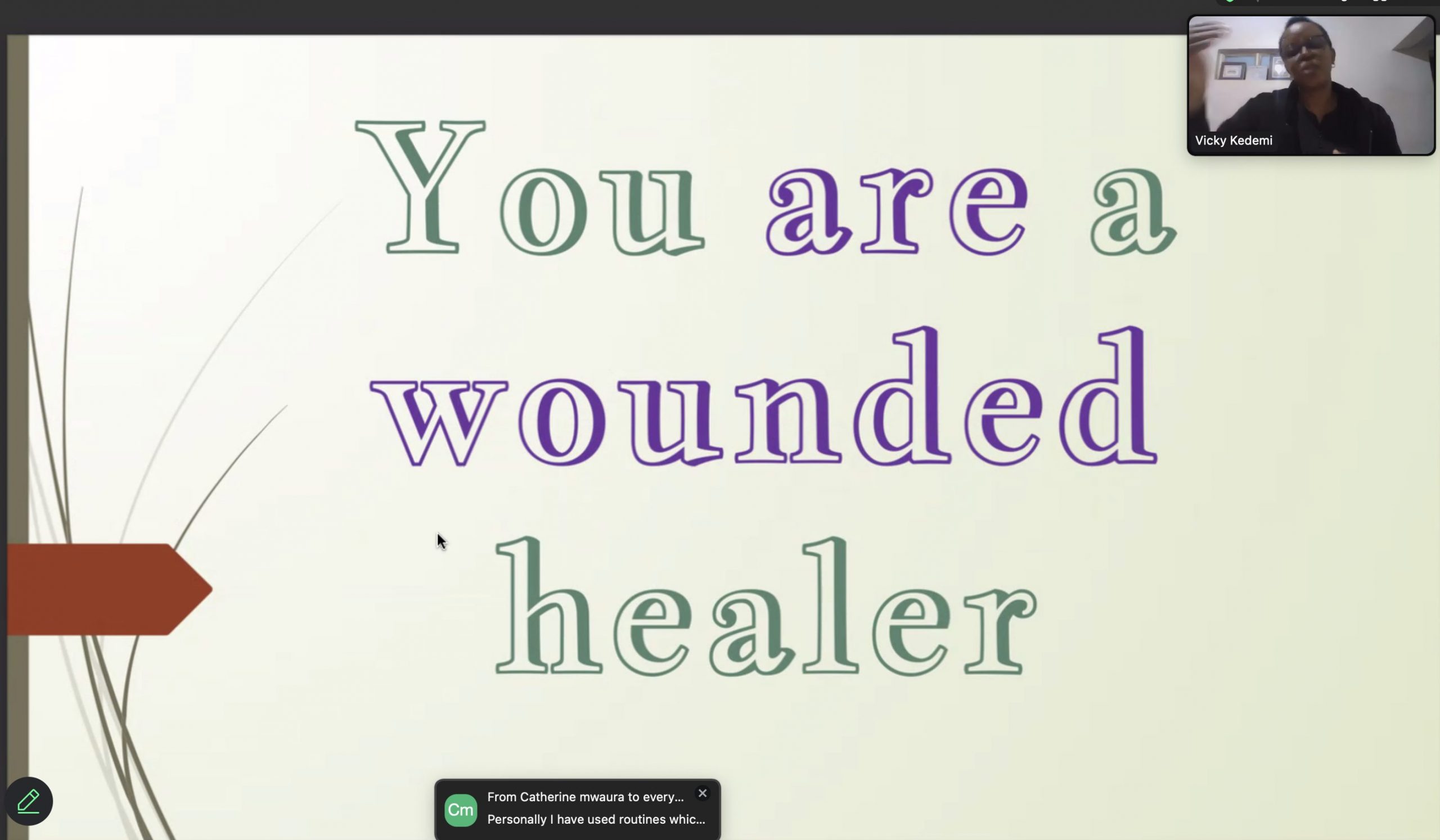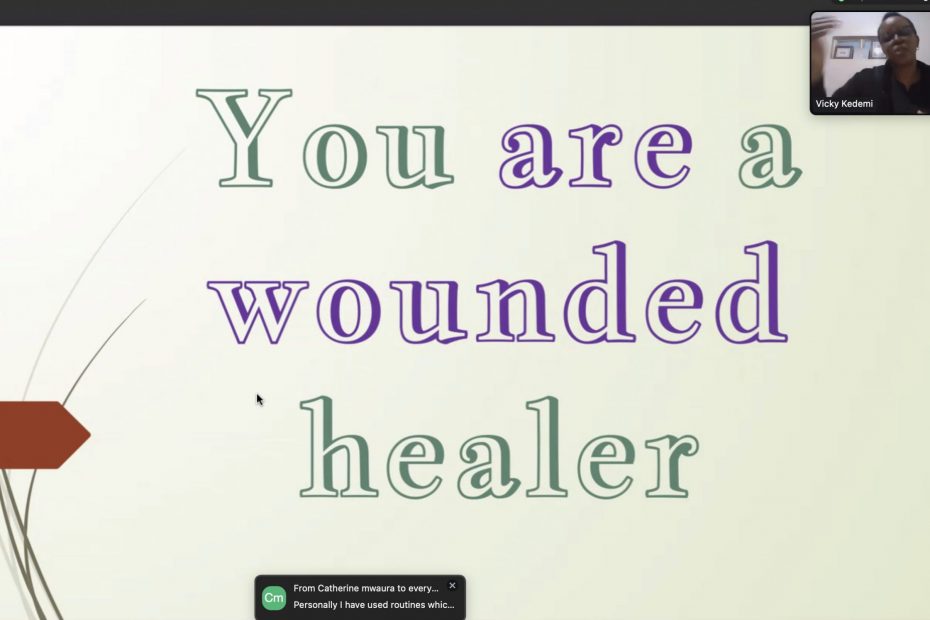Teacher Wellness

When Teaching Hurts: Teacher Wellness in Tough Times by eMsingi

On 4 August 2025, eMsingi under the Psychosocial Support pillar, hosted the latest instalment of its webinar series, “When Teaching Hurts: Teacher Wellness in Tough Times.” The Psychosocial Support pillar curates practical mental-health resources and training for schools and Guidance & Counselling teams, and shares updates through eMsingi’s website ( emsingi.org) and Instagram ( @e-msingi-Project). This month’s session focused on the impact of today’s collective crisis load, shifting political climate, economically harsh times, the lingering aftermath of COVID-19, and online overload on teacher wellbeing, and offered simple daily practices alongside school-level support in response.
The discussion was facilitated by Victoria Kedemi, a licensed marriage and family therapist and long-time educator and now she practices under Renewal Haven, a family and marriage counselling service. Drawing on classroom experience and clinical work, she framed a simple model of centered wellbeing across four interconnected domains: physical wellbeing, social wellbeing, psychological wellbeing, and spiritual wellbeing. The guiding idea was balance: when one area is depleted, teachers feel it everywhere.
The session mapped out the context shaping today’s classrooms. Victoria described Kenya’s layered, collective stress from historical harms and shifting family structures to COVID aftershocks, economic strain, online overload, and recent civic unrest and showed how these pressures land on the school doorstep. In real terms, they show up as loss of trust and connection, anxiety about safety, and a frayed sense of identity. Students absorb the same headwinds, so teachers meet not just cognitive needs but emotional ones too.
Inside the classroom, that stress has a recognizable face: anger as a secondary emotion (masking shame, fear, or uncertainty), rising aggression and bullying, absenteeism, and dips in concentration and output. Victoria’s core message was clear that the “difficult” learner is often a hurting learner. She invited teachers to preserve dignity, avoid shaming language.
At the core of the session was a toolkit teachers can use immediately. Victoria encouraged brief “micro-resets” between lessons two or three deep breaths, a quick stretch, or a slow walk to the door to settle before the next class. With students, she modelled age-neutral techniques such as the 5-4-3-2-1 grounding exercise, counting backwards, and a 60-second check-in on paper to move feelings out of heads and onto the page. She also urged clear boundaries: set realistic windows for marking, meetings, and messages; take five quiet minutes before leaving; and adopt a personal shutdown ritual so you arrive home as a parent or partner, not a teacher on autopilot.
The lively Q&A grounded big ideas in everyday dilemmas. On work–life balance,Victoria urged teachers to start with what they can control: build micro-rests into the day, create a deliberate transition from school to home (a brief walk, shower, or prayer), and, when possible, raise needs constructively with leadership through practical proposals. On handling anger in class, she advised looking for the root cause, teaching replacement responses (for example, “hands in jail” instead of hitting), using short movement and breathing resets, and following up one-to-one away from an audience. Asked whether family patterns really repeat, she noted they often can unless we talk about them openly and surround learners with supportive adults and accurate information. Throughout, she reminded participants that therapy works when it’s qualified and collaborative, and that teachers are vulnerable to burnout, compassion fatigue, and secondary trauma so self-care isn’t indulgence; it’s part of the job.
Victoria closed with a phrase many participants said they’ll carry into term: “You are a wounded healer.” Teachers don’t wait to be flawless to heal; they heal while healing by anchoring to faith and values, by protecting sleep, nutrition and movement, and by choosing connection over control, every day.
Watch the full session: on YouTube (https://www.youtube.com/watch?v=U_4SwvDKryE) or via the Psychosocial Support page on our website (emsingi.org).
Keep learning: The Psychosocial Support page hosts short videos, worksheets, and practical guides you can plug straight into staffrooms and counselling offices. Our Teacher Engagement pillar also offers courses and a supportive community for ongoing growth.
For more information please visit: https://emsingi.org/index.php/psychosocial-support/
Contact information: communications@emsingi.org | Facebook: @E-Msingi | Instagram: @e-msingi-project